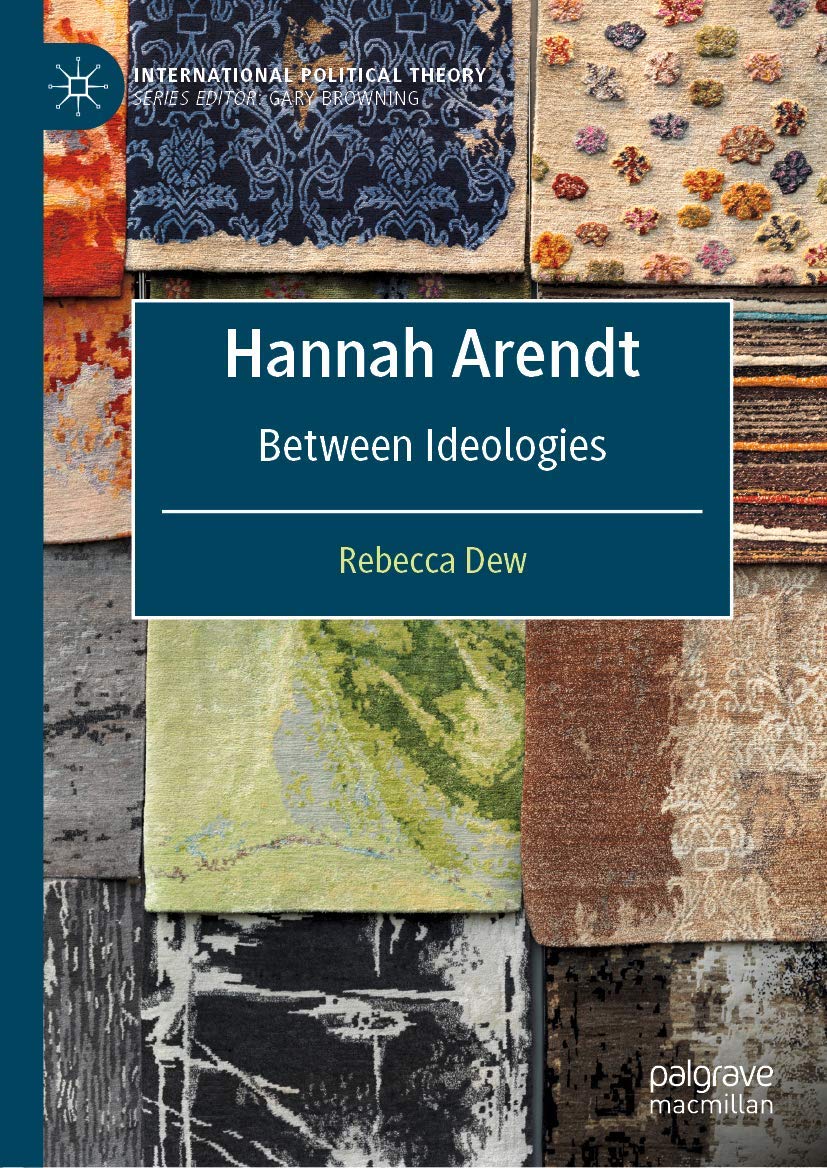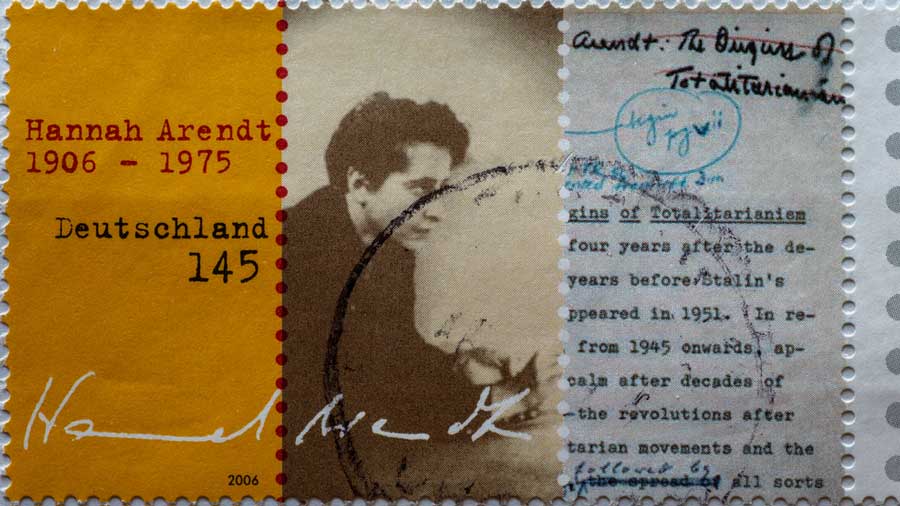It is somewhat unsettling to write a review for a book that engages seriously with the theoretical and philosophical engagements of a leading intellectual in the book review section of a newspaper foundationally meant for mass consumption. One cannot deny, however, that Hannah Arendt has been read widely across the globe, quoted, celebrated and consistently recycled as a popular icon for human rights and feminism. Rebecca Dew’s book will point out for us the apparent reason for such popularity that emerged from Arendt’s own understanding of being in a world fraught with contradictory ideologies that, in the same breath, validate and cancel each other out. Arendt did not come out of Martin Heidegger’s bag after all, insists Dew. In spite of the direct and sometimes obvious influence, particularly in terms of Heidegger’s views on technology, being and socialization, Arendt moved considerably away from Heidegger’s notion of the most authentic form of being, which was “being-unto-death of the self”. In fact, Dew claims, that Arendt subverted it: “... for Arendt human beings live most authentically in a world they share with others like themselves and with whom they are in constant communication and to whom they appear through speech and action.”
As one reads on, Dew’s book becomes an important caveat for the serious reader of Arendt’s work. She will sift through the subtle misreadings of Arendt, the deliberate thematic manoeuvres that critics of Arendt, from Maurizio d’Entrèves to Dana Villa or Anthony Cascardi to Seyla Benhabib, have attempted in order to fit Arendt into their ideological dynamic or political necessity. Dew’s critique is bland, direct and, occasionally, lethal. Villa, who edited The Cambridge Companion to Hannah Arendt in 2000, a volume that Dew refers to as “a preliminary touchstone for all things Arendt”, seems to have conveniently bypassed Arendt’s critique of modernity; likewise, Benhabib’s revisionist approach “in line with a largely feminist interpretation missed Arendt’s context and meaning”. Within the short span of a single but exhaustive chapter, Dew attempts a roll call of all major Arendt scholars and tries to read between the lines of their individual projects. It is her attempt to unpack the methodological implications of the work of a complex philosopher such as Arendt. There will be differences in approach, and the inevitable clash of ideological discourses. However, it seems to me that Dew attempts to rescue Arendt to a more philosophical space — albeit a space of complex clarity — out of a mesh of political manifestos that she is sometimes made to represent. Dew asserts, in no uncertain terms, that Arendt is not a political scientist: “It is perhaps most fitting to call her a well-educated and historically informed eclecticist.”

Hannah Arendt: Between ideologies by Rebecca Dew, Palgrave Macmillan, 77.99 euros Amazon
Understandably, therefore, Dew wants her readers to view Arendt as more of a philosopher than a theorist. She reads Arendt’s body of work by placing them alongside the works of other philosophers such as Aristotle, Kant, Jaspers and Heidegger. From Heidegger’s classes on Nicomachean Ethics, Arendt gathered ideas on moral and deliberative choice, the contingent nature of human encounter, and the value of friendship. From Kant she picks up the ideational notion of intersubjective human exchange that is always and necessarily morally informed. As she was writing her final book, The Life of the Mind, Arendt was still grappling with the Kantian idea of sensus communis or the sense of community. Heidegger’s influence on Arendt need not be over-emphasized. However, throughout the body of her work, Arendt engineered lateral shifts from a Heideggerian life-world into a more communal form of existentialism that was informed by her markedly political ideas of society and community. All of this has been discussed already by many Arendt scholars. Perhaps the most important takeaway from Dew’s book is her emphasis on the influence of Karl Jaspers on Arendt. In her critique of modernity, Arendt draws heavily and categorically from Jaspers. Her critique of the life-order engendered by modernity is qualified by Jaspers’ emphasis on the lack of foundation, cultural heritage or responsibility. In the increasing atomization of modern life, Arendt read symptoms of rootlessness that were brought about by automatism, technique and apparatus. It is not difficult for the discerning reader to discover in Arendt’s writings on existential modernity the indelible mark of Jaspers. It is this influence, always cursorily discussed or discounted in books, conferences or classrooms, which makes Arendt’s brand of existentialism atypical. Dew’s book clearly distinguishes between the attitudes of Arendt and her mentor, Heidegger, in terms of the modern predicament and tries to address “the systemic silence on the philosophical impacts of Arendt’s other mentor, Jaspers, upon the development of her political philosophy.”
This book is an important addition to the body of Arendt scholarship. However, the chapter division comes across as somewhat staccato, and needed roundedness. The first chapter, for example, reads more like an ‘introduction’ to the entire volume, and might have been called so. Similarly, a proper ‘conclusion’ to the book would have placed the entire argument in sharper focus. Other than these minor hitches, this book will be a good addition to any university library or personal collection.











